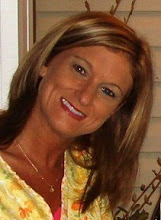 Video podcasts found on iTunesU - WGBH Teacher Domain can very useful to teachers! "Why Doesn't the Moon Fall Down?" (grades K-5) provides a creative reason why the Moon orbits Earth instead of Earth's gravity causing it to "fall". As I teacher, I could share this explanation with my class. Or, I could SHOW this video to my class!
Video podcasts found on iTunesU - WGBH Teacher Domain can very useful to teachers! "Why Doesn't the Moon Fall Down?" (grades K-5) provides a creative reason why the Moon orbits Earth instead of Earth's gravity causing it to "fall". As I teacher, I could share this explanation with my class. Or, I could SHOW this video to my class!I also checked out "Booming Sands" (grades 9-12), which is focused on the Dumont Dunes in Death Valley (located on the border of California and Nevada). A group of students from Caltech did research on the reason why dunes "sing" or "boom". As sand moves via the wind, potential energy changes to kinetic energy and again to acoustic energy. To be honest, this video was of NO INTEREST to me. BUT, in the classroom, I could utilize this video if I were a science teacher. Who knows? Maybe this video could inspire a student to pursue a career in dune exploration?!?!
 WGBH also has a link to the Teacher's Domain website that, in my opinion, is MUCH easier to use vs. iTunesU. There, I found a video that teaches simple algebra by the means of shopping! It's very important to "get it" with the introduction of algebra. Some kids have trouble and give up WAY TOO SOON! This video uses something we (well, most of us) enjoy and tricks us into learning algebra! I like this concept! I've attempted to include the video below...
WGBH also has a link to the Teacher's Domain website that, in my opinion, is MUCH easier to use vs. iTunesU. There, I found a video that teaches simple algebra by the means of shopping! It's very important to "get it" with the introduction of algebra. Some kids have trouble and give up WAY TOO SOON! This video uses something we (well, most of us) enjoy and tricks us into learning algebra! I like this concept! I've attempted to include the video below...What I like best about the WGBH iTunesU video podcasts is that they're pretty short. The ones I checked out were no longer than 3 minutes. That's about all the time you need. Show the video to the class and follow-up with a discussion.




 Most kids use
Most kids use 


